Transgender people can join the military with their ‘preferred gender,’ Pentagon reveals
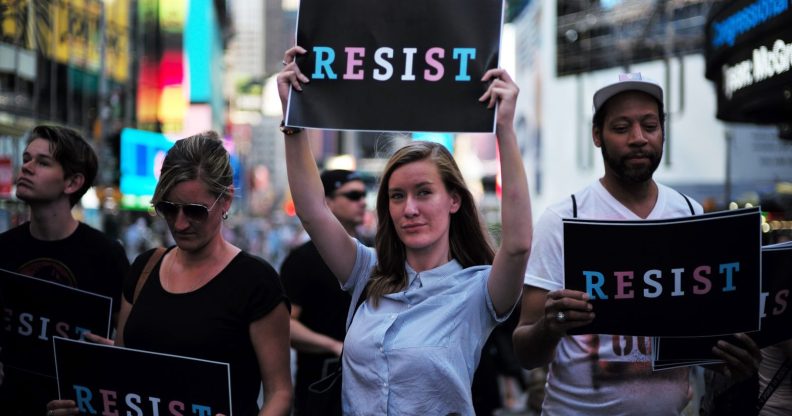
Opposition to the ban has been fierce and vocal (JEWEL SAMAD/AFP/Getty Images)
The Pentagon has explained for the first time how the military will go about accepting transgender people.
A Department of Defence memo has outlined extensive guidelines for trans people, including that they will be able to join with their “preferred gender” and use their bathroom of choice.
Non-binary applicants, however, will be forced to select their sex at birth on official documents, as the military does not yet have a third gender option.
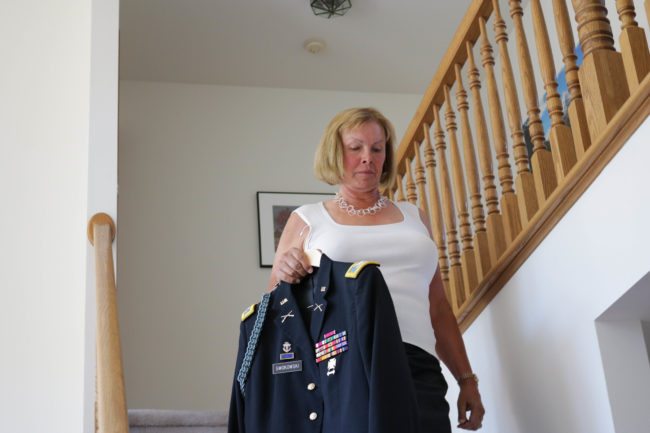
Former US Army Colonel and transgender serviceperson Sheri Swokowski (Getty)
The Pentagon memo emphasises that “every applicant will be treated with dignity and respect.”
The move comes as the US military prepares to accept trans recruits on January 1, despite repeated and ongoing attempts by President Donald Trump’s administration to ban trans servicepeople.
The memo explains that when it comes to bathroom and room assignments, medical exams and underwear requirements, individuals will be treated as their true gender.
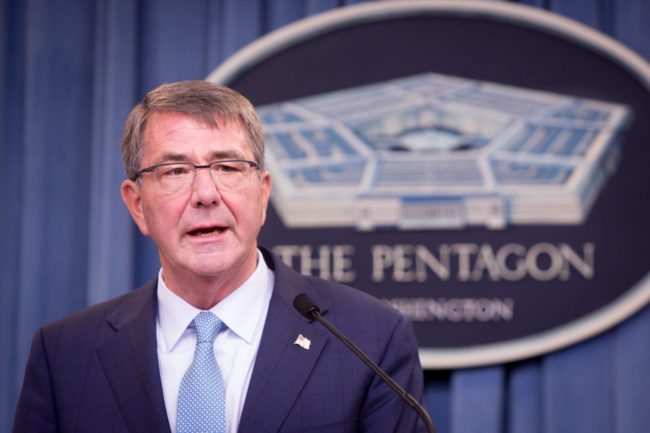
(Getty)
This will be the case even when recruits retain “the anatomical characteristics of their birth sex,” the memo adds.
New recruits will also be able to ask for privacy during group screenings, and have chaperones based on their true gender.
The only difference between trans servicepeople and their cisgender counterparts will be a medical history form known as DD 2807, which will be kept private.
The memo also states that trans applicants who have undergone surgery will not be able to join the military until they have been emotionally and physically stable for 18 months.
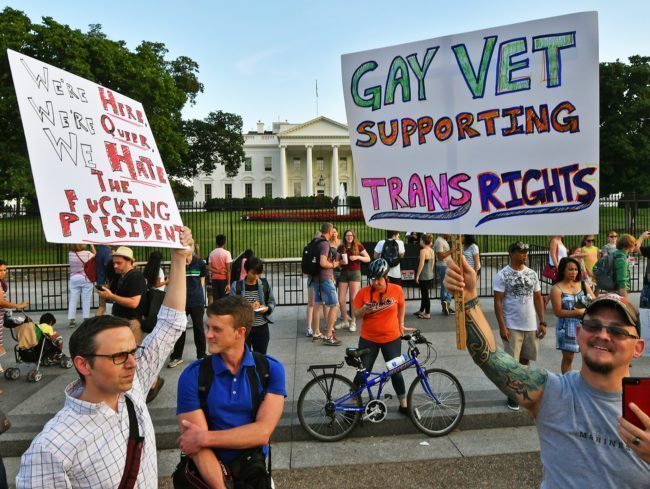
(Getty)
“We are substantially satisfied,” Shannon Minter, legal director of the National Centre for Lesbian Rights, told NBC News.
“Our whole goal here is not to have some unique rules,” she added.
“We just want transgender people to be treated exactly the same as everyone else.”
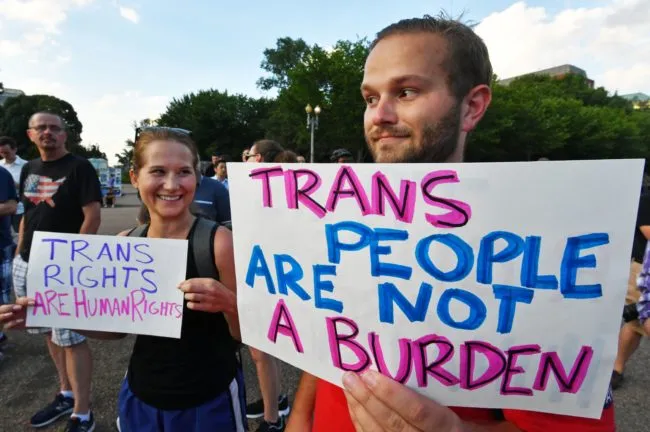
(Getty)
Trump announced in July that he would impose a ban on transgender soldiers serving openly in the military.
Reversing a decision made under President Barack Obama, Trump claimed in a string of tweets that the military “cannot be burdened with the tremendous medical costs and disruption that transgender in the military would entail”.
But attempts to enforce his tweets have been blocked in court, with judges ruling against Trump in both Washington, DC and Maryland.
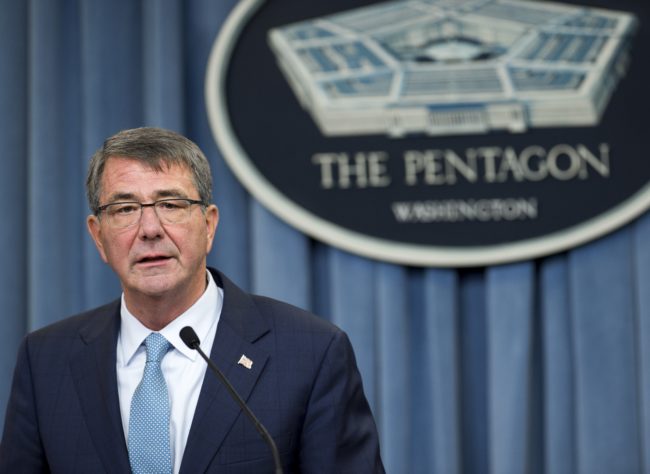
(Getty)
The administration had been seeking an emergency stay to block the deadline – which is 11 days away – by claiming that it would be a massive bureaucratic burden, with 23,000 staff needing in-depth training on trans issues.
But that claim was rubbished earlier this month by three former surgeons general: Vice Admiral Donald C. Arthur, Major General Gale Pollock and Rear Admiral Alan M. Steinman.
It is unclear exactly how many trans people will be rushing to sign up, however, given the extremely uncertain situation and the live legal battles that could quickly end their careers.
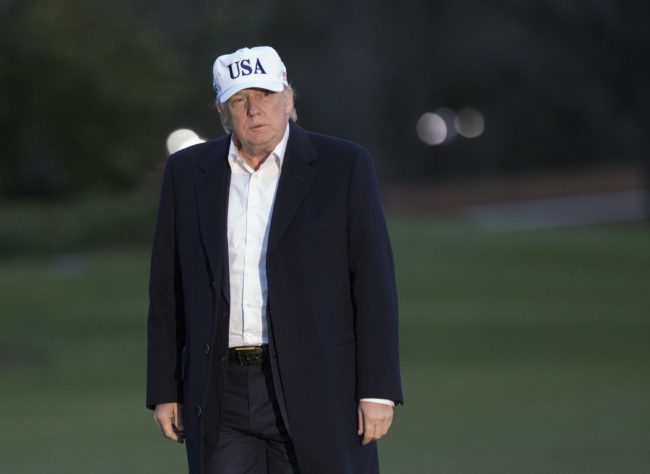
(Getty)
The directive was set to come into effect earlier this year, but was delayed until 2018 after Trump’s announcement.
US District Judge Colleen Kollar-Kotelly issued the order imposing the January 1 deadline, refusing to let the administration push it back any further.
She wrote: “[Existing] policies allowed for the accession of transgender individuals into the military beginning on January 1, 2018.
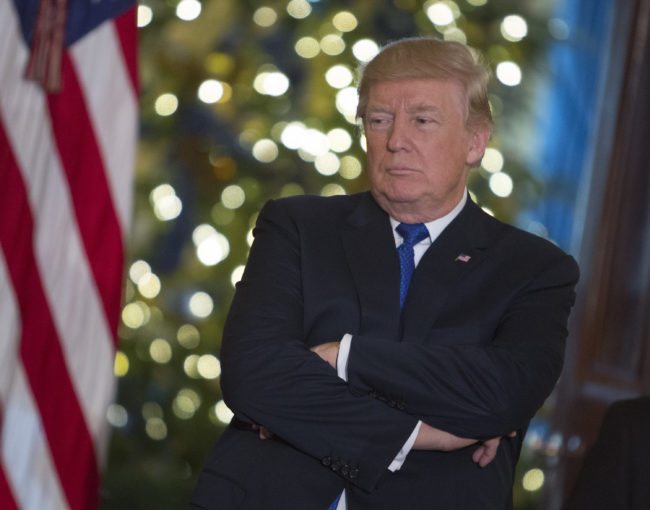
(Getty)
“Any action by any of the Defendants that changes this status quo is preliminarily enjoined.”
In a separate legal battle District Judge Marvin J. Garbis went further, enabling trans troops who have scheduled transition-related medical care to continue with their treatment with no deadline.
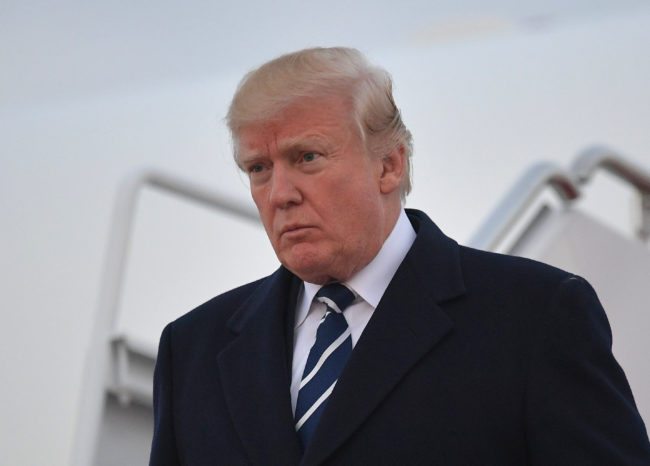
(Getty)
The Maryland judge ruled that Trump’s potential prohibition was “egregiously offensive,” with no evidence to show it “was necessary for any legitimate national interest.”
The case, brought by the ACLU of Maryland on behalf of six soldiers, led District Judge Garbis to state that Trump’s ban “was not driven by genuine concerns regarding military efficacy.”

